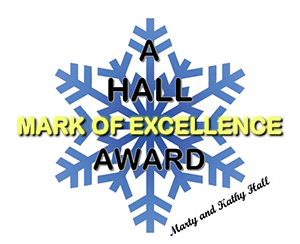 This World Cup coverage is made possible through the generous support of Marty and Kathy Hall and A Hall Mark of Excellence Award. To learn more about A Hall Mark of Excellence Award, or to learn how you can support FasterSkier’s coverage, please contact info@fasterskier.com.
This World Cup coverage is made possible through the generous support of Marty and Kathy Hall and A Hall Mark of Excellence Award. To learn more about A Hall Mark of Excellence Award, or to learn how you can support FasterSkier’s coverage, please contact info@fasterskier.com.

Johannes Hoesflot Klaebo (NOR) – FIS nordic world ski championships cross-country, individual sprint, Planica (SLO). www.nordicfocus.com. © Modica/NordicFocus. Every downloaded picture is fee-liable.
By the time the men’s final started, the procession had all but begun. Johannes Hoesflot Klaebo (NOR) went to the front, kept the rest of his competitors just out of reach, and used the final stretch to wave to the crowd as he claimed his seventh World Championship title. A whole season’s worth of results pointed to that conclusion, and it had finally come. It could almost have appeared unextraordinary but for the fact that the Planica, Slovenia race course seemed intent on writing the final few verses of this season-long story. On a day when racers routinely veered off course, Klaebo’s achievement of moving through all of it unscathed—making a World Championship look almost inevitable—was put into stark relief. Johannes Hoesflot Klaebo was a master craftsman at work in this, his chosen medium: sprint racing.
Ultimately, the day—and the World Championship—was won by Klaebo, followed on the podium by World Cup Distance Leader, Paal Golberg (NOR) and the jubilant Frenchman, Jules Chappaz.
“A Hard-A** Course”
The real excitement at the World Championships today wasn’t in the final, but in the jostling it took to get there. Every quarterfinal heat seemed to apply another layer of complexity, as tough conditions and a winding Planica course combined to void most pre-race predictions. As US skier Ben Ogden would summarize in post-race comments to FasterSkier: “It was a hard-a** course, and slushy as well.”
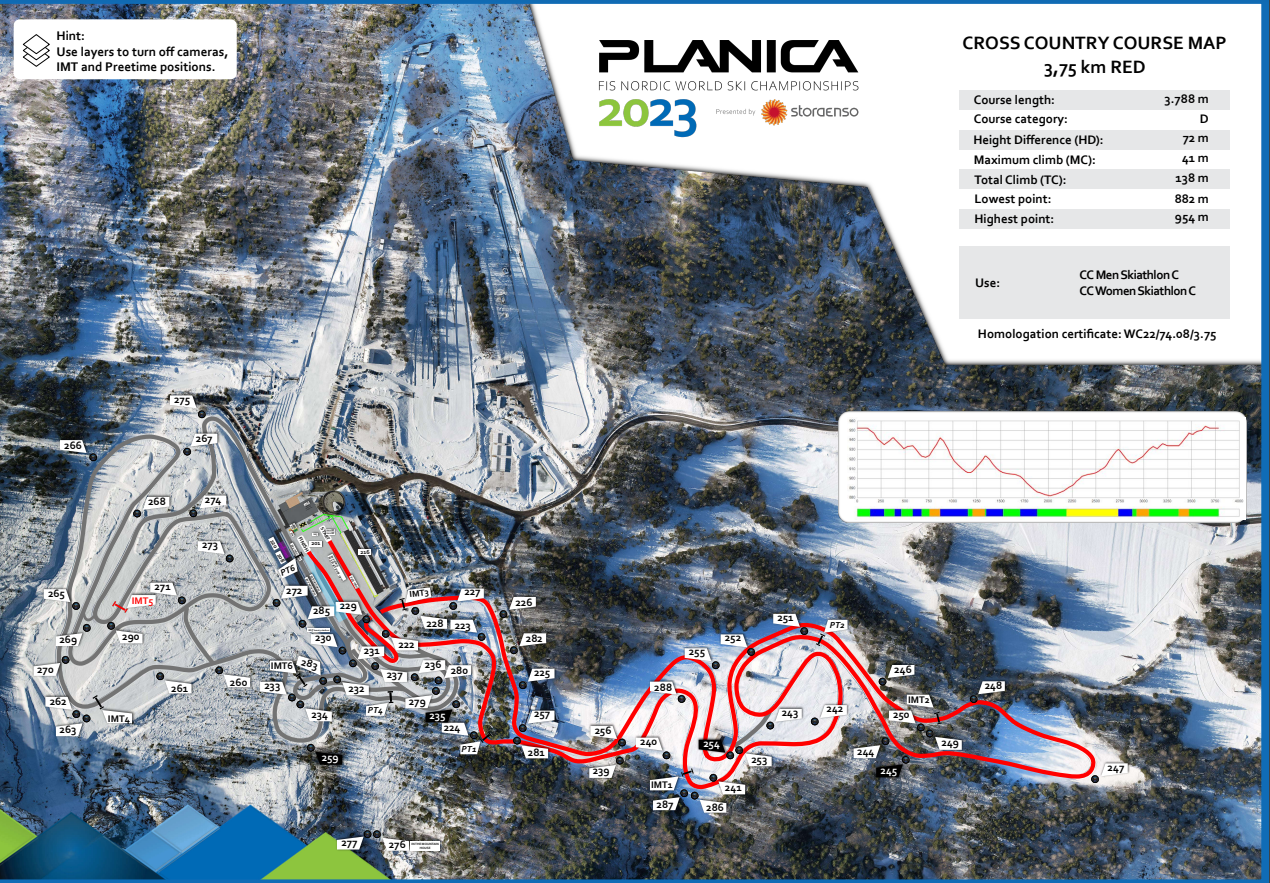
The second quarterfinal exemplified how conditions combined to re-write expectations in real time. Federico Pellegrino (ITA), the only skier in the field other than Klaebo with a sprint world title, and Richard Jouve (FRA), the only other skier besides Pellegrino and Klaebo to have won a sprint race this season, lined up as the marquee names set to challenge Klaebo. Alongside them, Even Northug (NOR) and Calle Halfvarsson (SWE) both looked to build off their own promising sprint results this season.

That field jockeyed for position as they hit the long climb that defined the middle-part of the Planica course. Smack in the middle of the climb—where skiers emerged from under a bridge—was an uphill chicane where many skiers broke into a herringbone. As the heats went on, that spot got increasingly chewed up, the snow got softer, and the chicane became a crux in the course that claimed another victim. Jouve suffered a momentary stumble, allowing Pellegrino and Halfvarsson to begin chasing Northug. Jouve eventually would close the gap to Pellegrino, but the two pre-race favorites weren’t fighting for first or second, but rather third place. Halfvarsson overtook Northug on the final climb to win the heat. Jouve had recovered from his stumble but not quite enough, being edged out by Northug for the second spot. The only two skiers to have beaten Klaebo head-to-head this season—Jouve and Pellegrino—were out before the semifinals.
The spot in the chicane that saw a little stumble for Jouve saw bigger accidents from others. In the first quarterfinal, Swedish skier Even Anger broke a pole and fell, causing a split in the field that allowed the Norwegian duo of Klaebo and Erik Valnes (NOR) to cruise to the semifinal. On the unlucky side of the fall in that heat was Canadian Graham Ritchie. In post-race comments to FasterSkier, Ritchie summed up his, and many other racers’ experience on the Plainca course: “That was a good learning race,” he said. “I was able to ski all right, but had a tumble. It was a sloppy hill, and if someone goes down next to you, it was pretty likely you’re going to end up in that mix.”
Ultimately, Valnes—who had qualified first and avoided that first quarterfinal heat carnage—would also fall victim to the tricky chicane. In the first semifinal, he entered leading before breaking not a pole, but a ski. It was that kind of day.
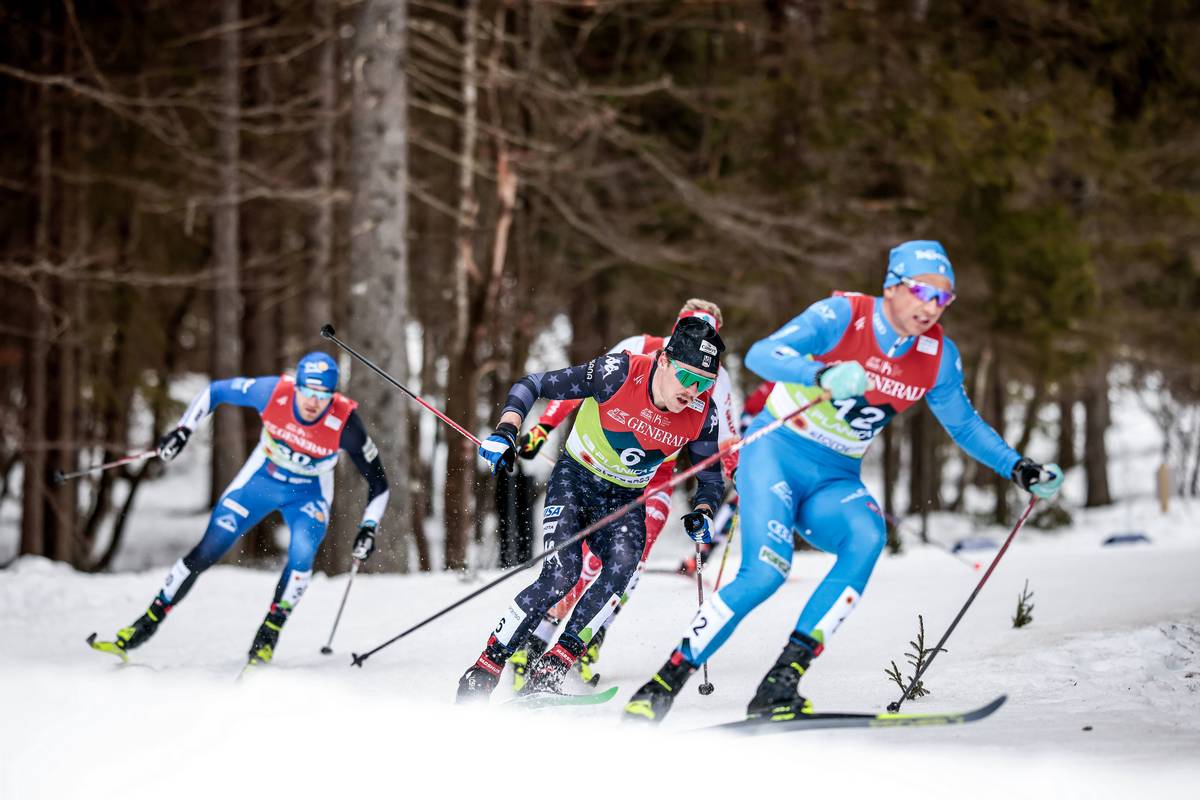
Sprint Quarterfinals
For the Americans—Ben Ogden, JC Schoonmaker, and Kevin Bolger—there was one place they looked to head: the Finals. “This time around at World Championships I’m more at liberty to set some goals,” Ogden said. “I’m really excited for the Classic Sprint—I have my heart set on getting into the Final.” For Ogden and Schoonmaker, a Sprint Final is the next logical step. Both have earned a pair of seventh place finishes in sprint races this year: Ogden in December at back-to-back weekends in Lillehammer and Beitostolen, Schoonmaker in November’s opener in Ruka and in the Tour de Ski at Val di Fiemme. The young Americans’ performances in qualifying seemed an auspicious sign: Ogden had qualified in sixth place, while Schoomaker had qualified in 15th. Ogden chose to a position in the third quarterfinal, where he matched up with other top-ten qualifiers Paal Golberg (NOR) and Lucas Chanavat (FRA). Ogden lingered in the mix through the early goings of the race, before launching into a hard stride that moved him up the pack at the base of the climb. For the young American, though, it was a move that couldn’t be carried to the finish-line. “I made a bunch of places up striding up the first hill,” Ogden said, “but just didn’t have it to push up and over the whole way.” Ogden finished sixth in the heat, saying post-race that “I was psyched with the qualifier, but it definitely took a little out of me.”
Schoonmaker entered the fifth quarterfinal heat. That heats highest qualifier was Finnish skier Niilo Moilanen, who looked to get out in front to avoid any kind of melee in the early downhill section of the course. It looked like a smart move, as Czech skier Ondrej Cerny went down in the first turn. Things then settled down and the pack was together through the main climb. In an instant though, the settled nature of the field was undone as Moilanen and Swedish skier Johan Haeggstroem tangled. Haeggstroem broke a pole, and Schoonmaker and French skier Renaud Jay seized the opportunity. Jay exploded towards the top of the climb with Schoonmaker in tow; less forceful, but now with less reason to be so. Jay and Schoonmaker could control their efforts all the way to the finish line, the fall having cleared the field for them to advance to the semifinals.
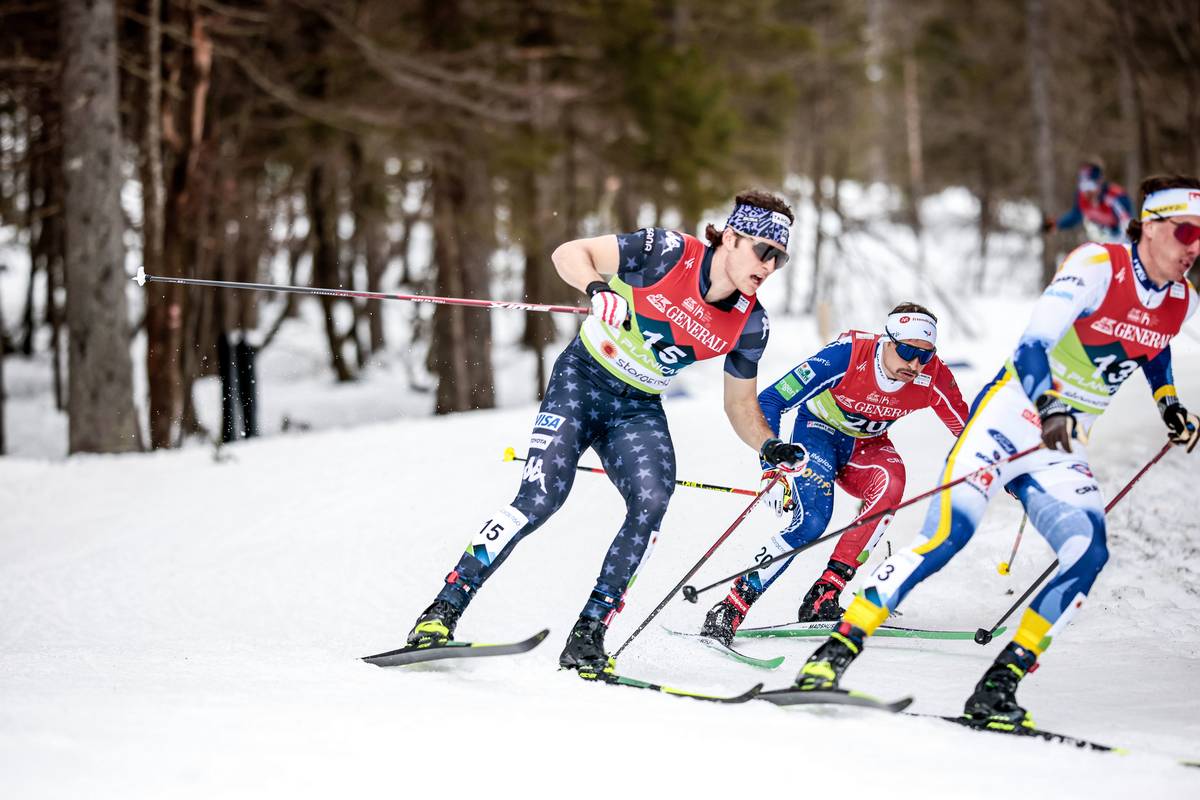
Sprint Semifinals and Finals
Schoonmaker lined up in the second semifinal alongside Paal Golberg (NOR), Michal Novak (CZE), Renaud Jay (FRA), and Marcus Grate (SWE). That field stretched only slightly through the early part of the climb into the uphill chicane; it remained a close race. Then, all of a sudden, Schoonmaker dropped to the snow, the last skier on the day to get bitten by bad luck and hard conditions. He popped up and skied on, but his chance at the final had slipped away. Chappaz and Golberg went on to claim first and second in the heat.
In the day’s final, Chappaz continued to prove fearless, even up against Klaebo who has dominated the World Cup season, and Golberg, the skier who has traded places with Klaebo for the World Cup Overall lead throughout the season. The 23 year old Frenchman’s would claim a World Championship bronze—out-lunged by Golberg by the narrowest of margins. Klaebo raced the final at the front, setting the pace wire to wire, apparently having decided to stay out of the troubling mix that had tripped up so me contenders on this chaotic day in Planica.
US “Pretty Satisfied” with Top 10 Results
In post-race comments to FasterSkier, US Ski Team Head Coach Matt Whitcomb said the US camp was “feeling pretty satisfied after what is not historically a wheelhouse event for us.”
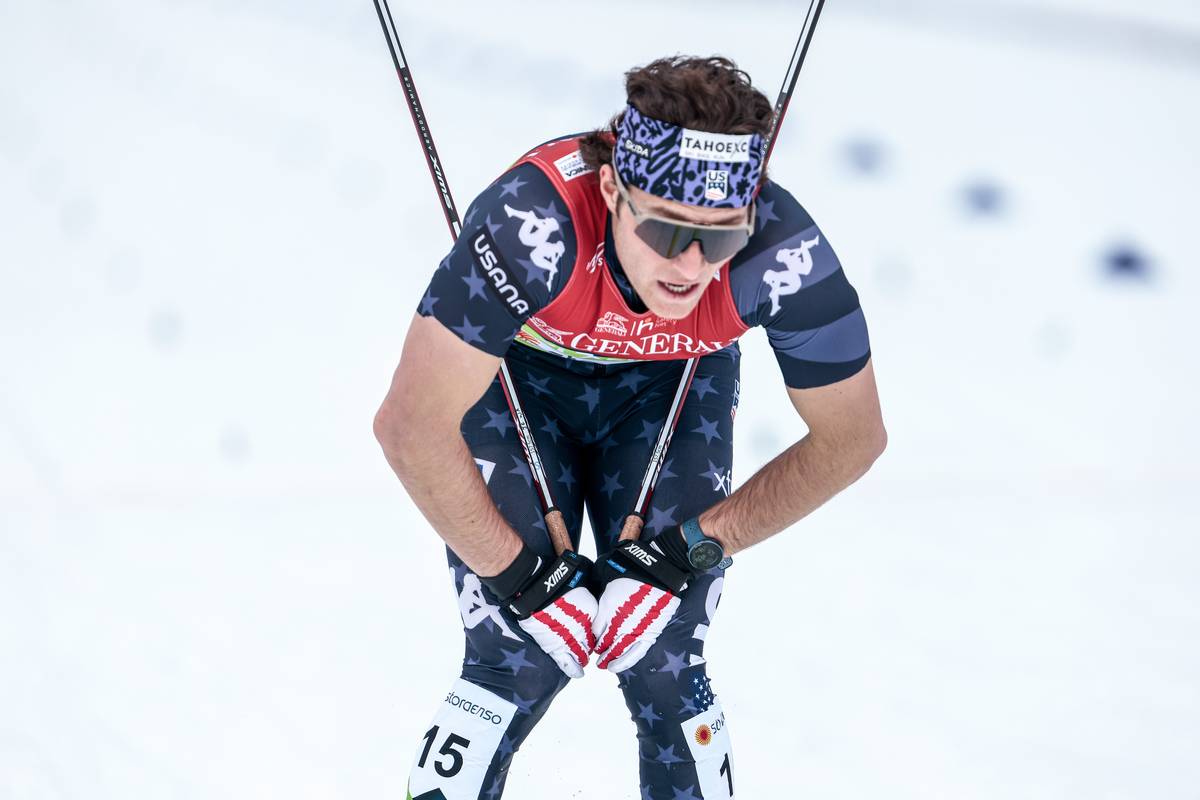
JC Schoonmaker’s semifinal performance saw him earn ninth place, the first top 10 World Championship finish of his young career. Schoonmaker joined Julia Kern and Rosie Brennan from the women’s field to give the US three total top 10’s on the day. That, Whitcomb suggested, is an overall strong result which shines through a day with a lot of twists and turns. “We love to chase the podium, and there’s always a moment where you realize that you won’t be doing that [in a sprint race] that is kind of a let-down,” Wuitcomb said. “But then the team pulls back and goes ‘we’re good.’ It was a really good day with three in the top ten.”
The US men’s team—and the entire World Championship field—now face the challenge of shifting disciplines to Friday’s 30 k Skiathlon. The shift in discipline will also mark a shift in focus for Klaebo who has now won the individual sprint race at World Championships or the Olympics in every season since Pyeongchang in 2018. His seventh World Championship title ties Gunde Svan (SWE) for the fourth most all-time. Klaebo is now in an historical peer group with only Sweden’s Sixten Jernberg (8), and Norway’s Bjorn Daehlie (9) and Petter Northug (13). The sprint was the relatively easy part for Klaebo, but he has yet to dominate a World Championships in the way that Northug did during the peak of his career, winning both distance, sprint, and team events in a single Championship. In Falun 2015, Northug won both the Individual Sprint and the 50 k, an accomplishment still unmatched by any other skier. Friday will offer an indicator of Klaebo’s abilities to deliver a similar performance, one of the few remaining historical precedents he still might be chasing.
Full RESULTS Qualifying | Heats
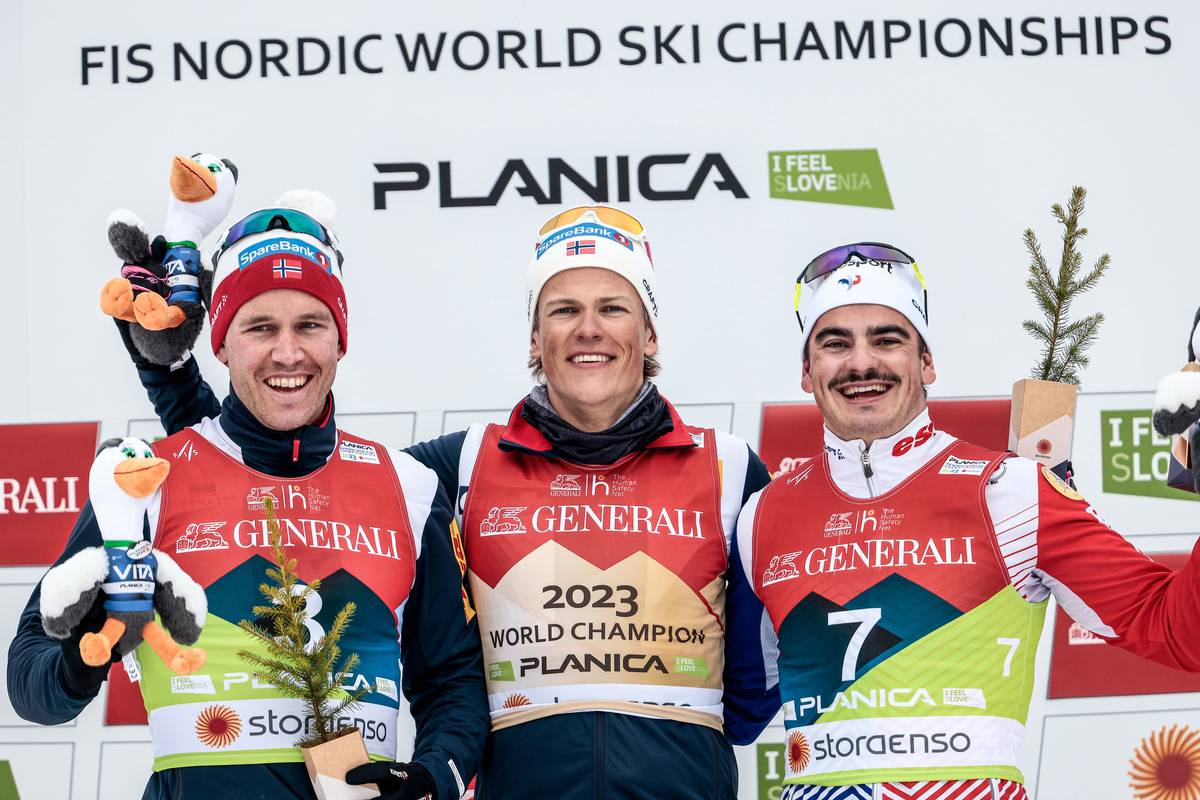
Ben Theyerl
Ben Theyerl was born into a family now three-generations into nordic ski racing in the US. He grew up skiing for Chippewa Valley Nordic in his native Eau Claire, Wisconsin, before spending four years racing for Colby College in Maine. He currently mixes writing and skiing while based out of Crested Butte, CO, where he coaches the best group of high schoolers one could hope to find.



